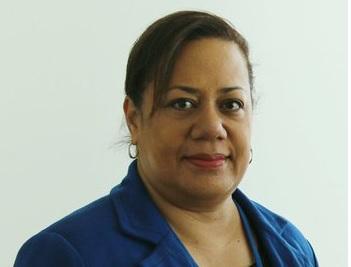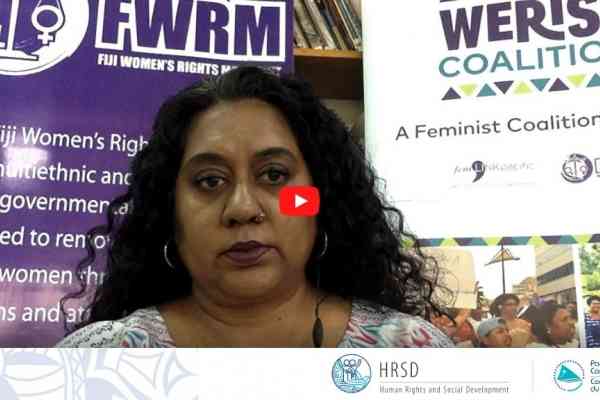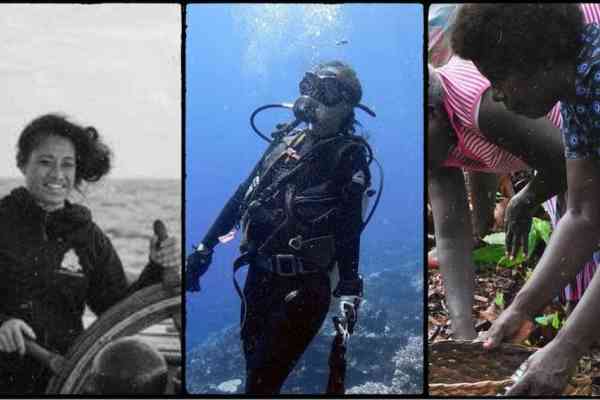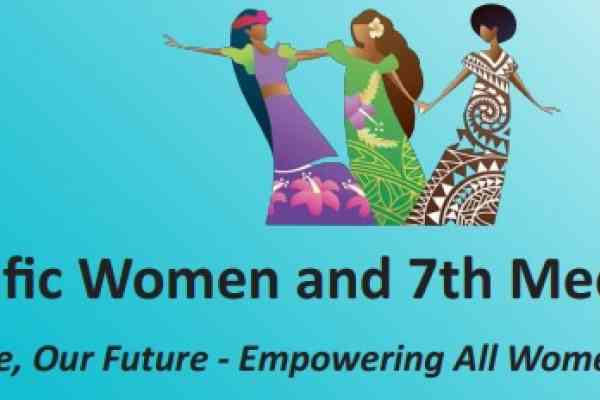Building alliances to address social issues affecting women and girls is the focus of ministries and organizations attending the 14th Triennial Conference of Pacific Women scheduled to take place virtually from 27 – 29 April (Fiji Time).
Deputy CEO and Head of Women’s Affairs and Gender Equality Division (WAGED) in Tonga’s Ministry of Internal Affairs, Polotu Fakafanua-Paunga says issues affecting women are cross-cutting, therefore finding solutions should be a united effort of ministries and governments across the region.
“It is very important that information of good practices, and solutions of different country government stakeholders and civil society organisations are shared at the triennial,” Fakafanua said.
She highlighted that “Gender mainstreaming is a way to go with regards to integrating and promoting gender equality across sectors.”
“There are other ways so we could learn what would and would not work from each country so there are lessons learnt from each other,” Fakafanua added.
Hence, in the spirit of sharing information, networking and building alliances, Fakafanua shares some insights of issues affecting women and girls in Tonga ahead of the conference that commenced this week.
Teenage Pregnancy - A challenge for young girls to complete education
One of the key issues and challenge identified by Fakafanua is the issue of teenage pregnancies. Tongan girls that get pregnant while still in school are given no other options apart from leaving school so the opportunity to continue their education stops there.
Fakafanua highlighted that girls are also made to either marry the father of the child or stay at home to look after the child.
She says that despite the number of girls attaining scholarship throughout the years, more males are able to complete their studies as compared to females.
“At the end, at universities, there are more returning male scholars than female because it is the child baring age for women, and some of them would get married or build a family.”
Fakafanua further stated that the lack of awareness, poor policies and infrastructure, and the lack of support from families has been a barrier for young teenage mothers who wish to complete their education.
“Young teenage mothers do not have the support of external family during childbearing year, it is the mother that stays home till the child is old enough then the mother resumes work.
“This shows we need to build an infrastructure to address teenage pregnancies upfront, but also strengthen the change in social and cultural norm,” Fakafanua noted.
“We need to look beyond that, at how we can build an enabling environment so that these unwanted pregnancies are no longer a problem.”
Tongan Women turn to traditional medicine due to stigmatisation on NCD
Although women in Tonga have access to reproductive health and health-services in general, stigmatisation on health-related issues such as non-communicable diseases (NCD) have caused women to seek traditional remedies rather than visit health clinics for proper care and advice.
Cultural and religious norms is another contributing factor to why people seek traditional medication.
“When it comes to sexual reproductive health, we still need to be sensitive about cultural and religious norms because as we know, what makes a country is its culture.
“Therefore, the traditional take on modern medicine and the stigmatisation of health issues such as NCDs, makes women move towards traditional medication,” said Fakafanua.
Fakafanua says there is a need to carry out awareness programmes for people to see hospitals and health clinics as their first focal point whenever they are sick.
“We need to contextualise and maximise the awareness on the importance of seeking medical assistance from hospitals and health clinics.
“Now that health clinics are available in rural and remote areas, there should not be any excuses for still- born children and so forth in this time and age,” she said.
Low reporting on domestic violence issues
Some women would not admit, and or be silent about domestic violence because reporting it is seen as “airing dirty laundry” says Fakafanua.
She said that when violent acts are not reported, the domestic violence cycle continues, and this has plummeted the economy as well.
“The cycle of domestic violence can continue with your children, and this cycle will not end as these children come from families experiencing violent acts.
“Studies have shown that the economic cost of violence to a country includes cost of missing work, cost of treatment at the hospital, cost from the police, and cost from centres women seek help from.
“There is also emotional cost within the family and the community because of the domestic violence experienced from home,” Fakafanua said.
Fakafanua said it’s important for individuals going through violence to acknowledge the abuse and seek help.
“Seeking assistance is important, and this should be normalised through communications and media representation.
“Women can also face depression as a result of domestic violence, and it is important to know that depression does not discriminate or look at the class or status of the person.
“The more help you seek, the more empowered you feel,” Fakafanua said.
Unequal Power - A barrier for Tongan Women in the Economy
Having most men holding rights to the land creates an uneven playing field for women to involve and engage in the informal sector and subsistence micro enterprises says Polotu Fakafanua-Paunga.
Fakafanua adds that women should have access to credit collateral and other financial services as it is their bread and butter.
“In Tonga, we have these grants for women, and it is very popular that it was the first to be exhausted in the Ministry.
“It just speaks a lot about the demand for the level of engagement of women in the informal sector.”
She said the role of women is different regarding engagement in rural areas and it requires the support of government ministries.
“Increasing opportunities in terms of collateral for women’s initiatives for women should be governments priority.
“Tonga has come a long way since establishing the Women’s extension sector in 1968 and the Women’s affairs division in 1993.
“Having the recognition and collective commitment for women’s empowerment in formal and informal sector such as the case of Tonga is what we can share with other countries during the triennial,” she said.
It will take time to have women in power and decision making
Fakafanua believes it will take some time for women to have equal participation in politics and decision making because some do not see themselves in such spaces.
Cultural norms throughout generations have also influenced why some women may feel these spaces should only be reserved for men.
Fakafanua says creating an enabling, supportive environment would give women the confidence and voice to be equal in decision making processes.
“We need to have interventions to support women’s participation in decision making, as well as in parliament.
“We have to start getting women to register for voting at the elections, and also encouraging and supporting potential women candidates who are already in these spaces,” says Fakafanua.
The 14th Triennial Conference of Pacific Women starting tomorrow will be discussing critical areas concerning women’s human rights and gender equality in the region.



